.gif)
I am deeply interested in non-horror movies which focus on/feature ghosts. Often these ghosts are used to explore themes of grief, memory, and history; a ghost, interacting with the world as if through gauze, can be a very emotionally powerful thing. My definition of "ghost" is quite loose—memories which take on fully human forms, melancholic resurrections, and any sort of human entity which sits on the edges of normal perception and interacts with the living characters in a "ghost-like" way. I'm always looking for more non-horror ghost movies! If you have any suggestions please let me know.
As with anything I get somewhat interested in, the making of this list has quickly taken on a somewhat obsessive desire for completeness; or, barring that, at least the inclusion of as wide a range of movies as I can find. As no better man advances to take this matter in hand, I hereupon offer my own poor endeavors. I promise nothing complete; because any human thing supposed to be complete, must for that very reason infallibly be faulty. One downside of this compendious approach, besides the wasting of my precious time, is that the subset of actually good movies listed below—the reasons I am interested in non-ghost horror movies in the first place—will slowly get subsumed by ever-greater valleys of middling-to-poor slop. For this reason, so as to claw my way out of a grave dug of mine own hand, here is a short list of the most worthwhile, and ghostly, movies found below: Wings of Desire; Truly, Madly, Deeply; Tous les matins du monde; Russian Ark; Phantom Thread; and A Ghost Story.
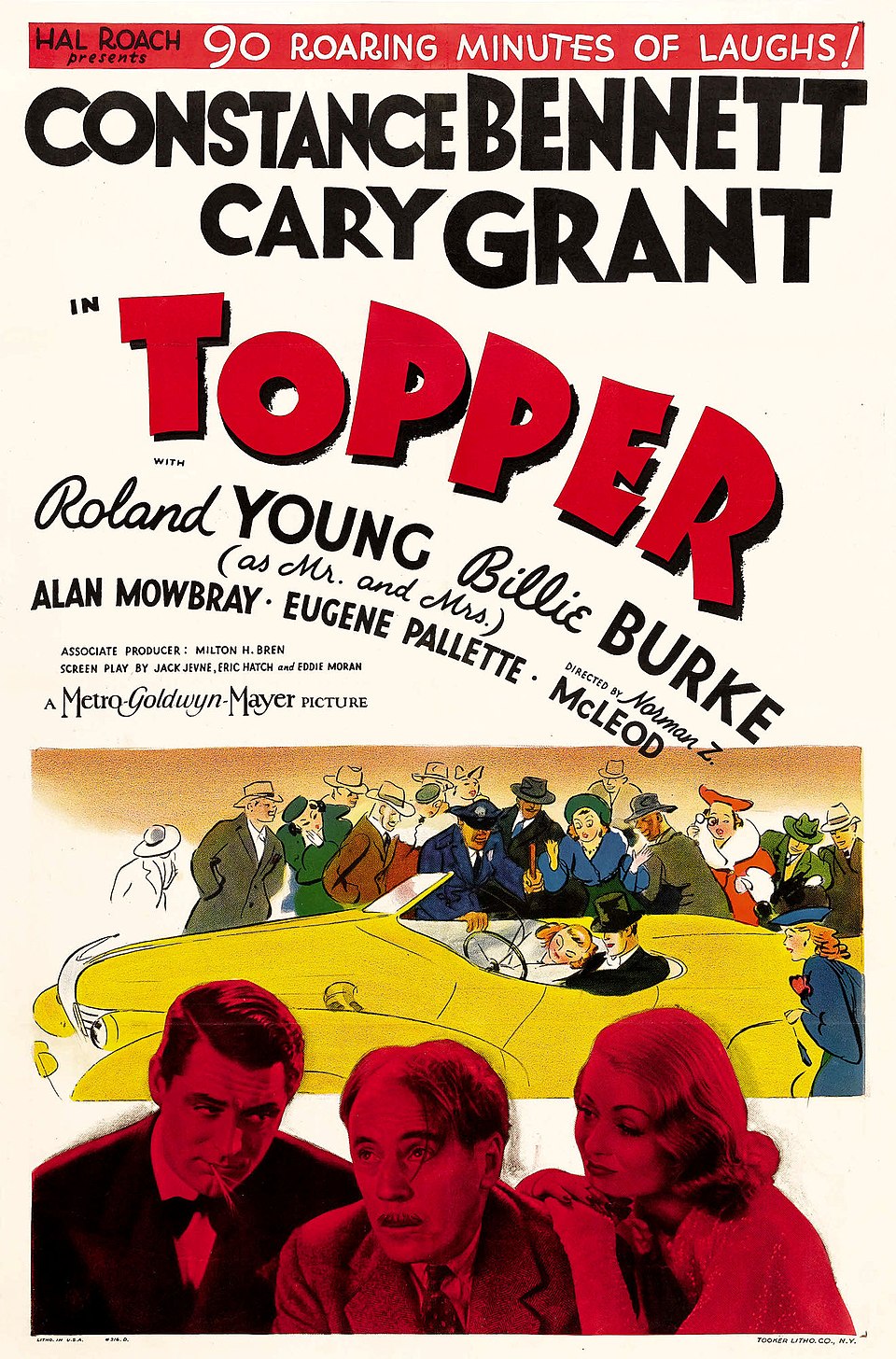
Topper | 1937, Norman Z. McLeod
Some good old fashion ghostly laughs (with only a little bit of domestic abuse humor mixed in!) Despite presenting itself as yet another Cary Grant picture, Topper leans much more into the comedic abilities of Roland Young, whose proto-Weekend-At-Bernie's self-puppeteering makes for the best moments in the movie. While the ghosts themselves are not impressive (serving as boring, but typical to the time, heavenly spirits) the ghost special effects were; I'd love to read more about how they filmed this movie.
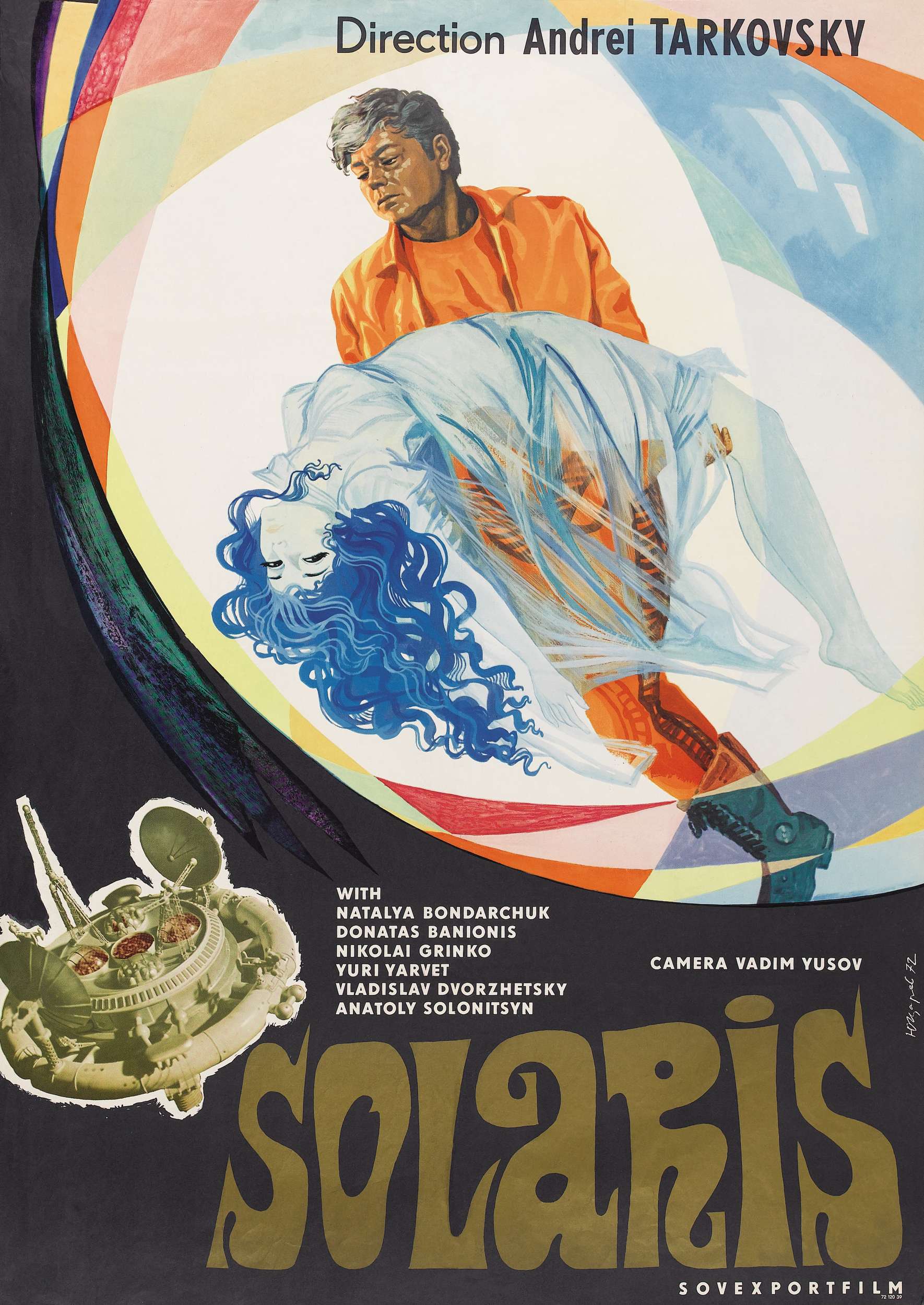
Солярис (Solaris) | 1972, Andrei Tarkovsky
Mirror could also potentially go on this list, but the Pushkin letter ghost has a clearly threatening aura and so I think Solaris is a better fit. Tarkovsky, in a move that is not-at-all surprising, makes the simulacra noticeably more ghost-like than Lem's novel, to great effect.
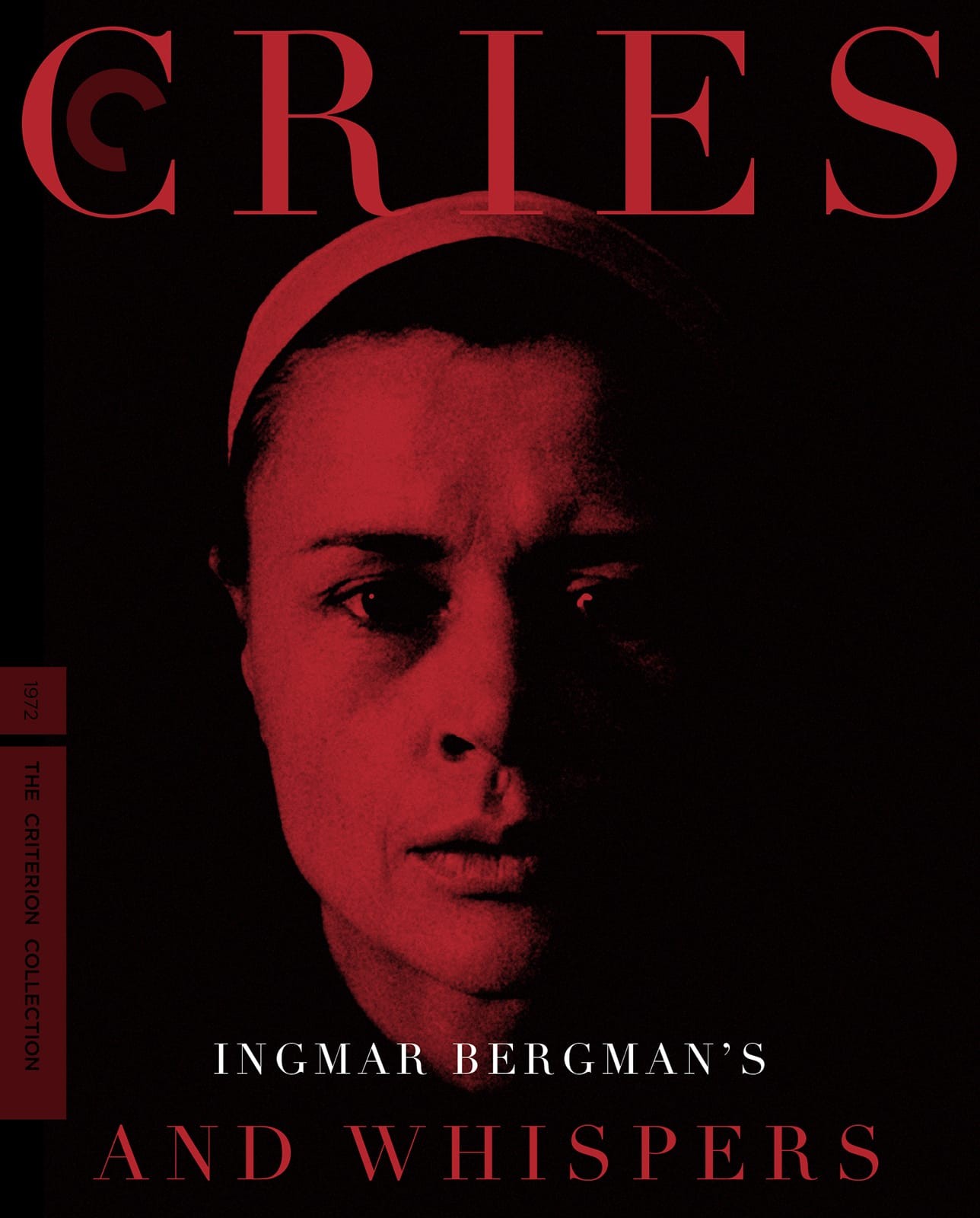
Viskningar och rop (Cries and Whispers) | 1972, Ingmar Bergman
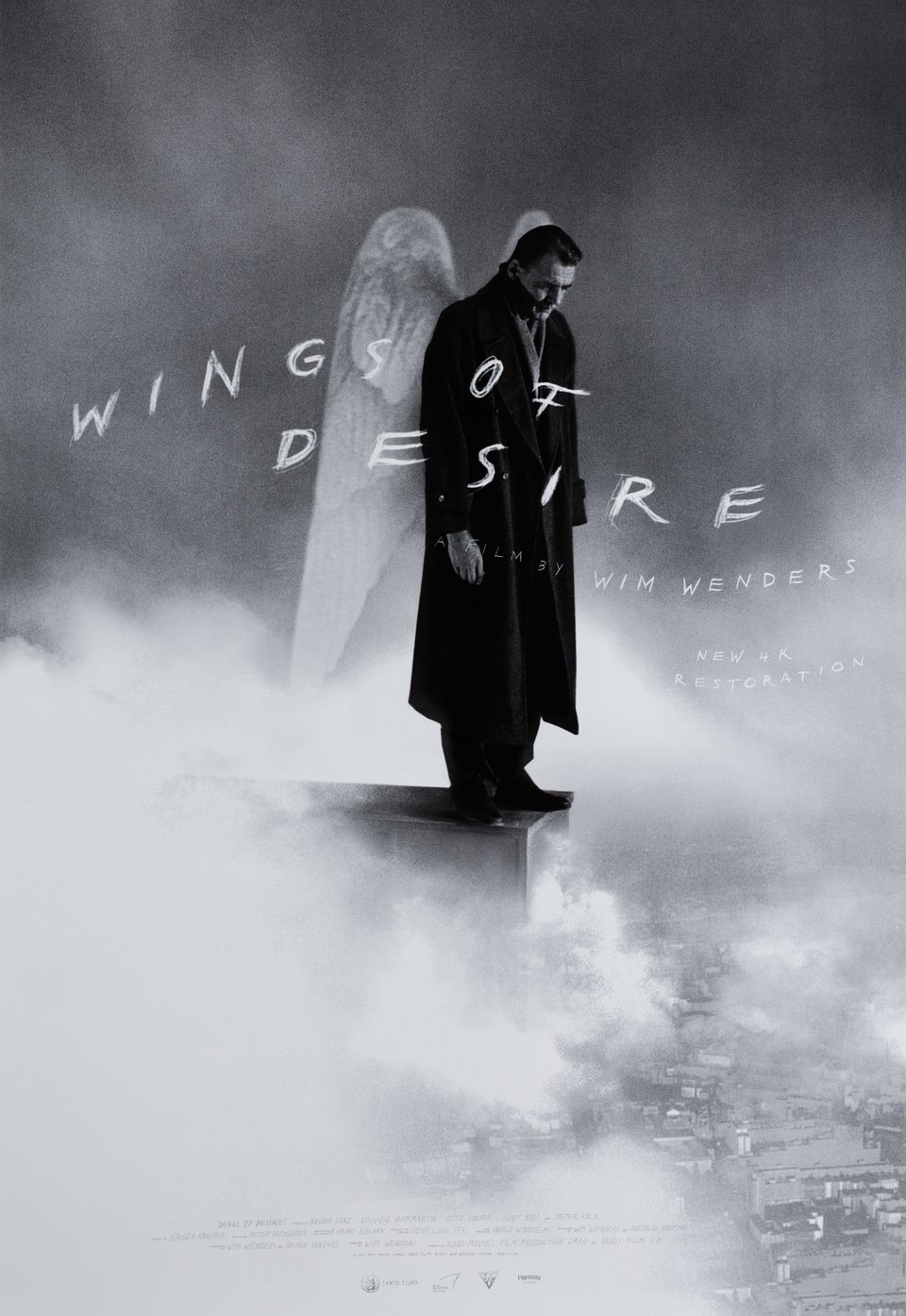
Der Himmel über Berlin (Wings of Desire) | 1987, Wim Wenders
Of course, these are not ghosts, but instead angels. Yet they are some of the most ghost-like angels I've ever seen, so on the list they go. Berlin itself is a ghost as well, with the characters moving through its corpse as they go about their lives.
N.B. There are several other movies, mostly from around the 1940s, which couch their angels in much more ghost like visual language—It's a Wonderful Life and its derivatives, such as the also charming The Bishop's Wife, stand out as the clearest examples of this trend.
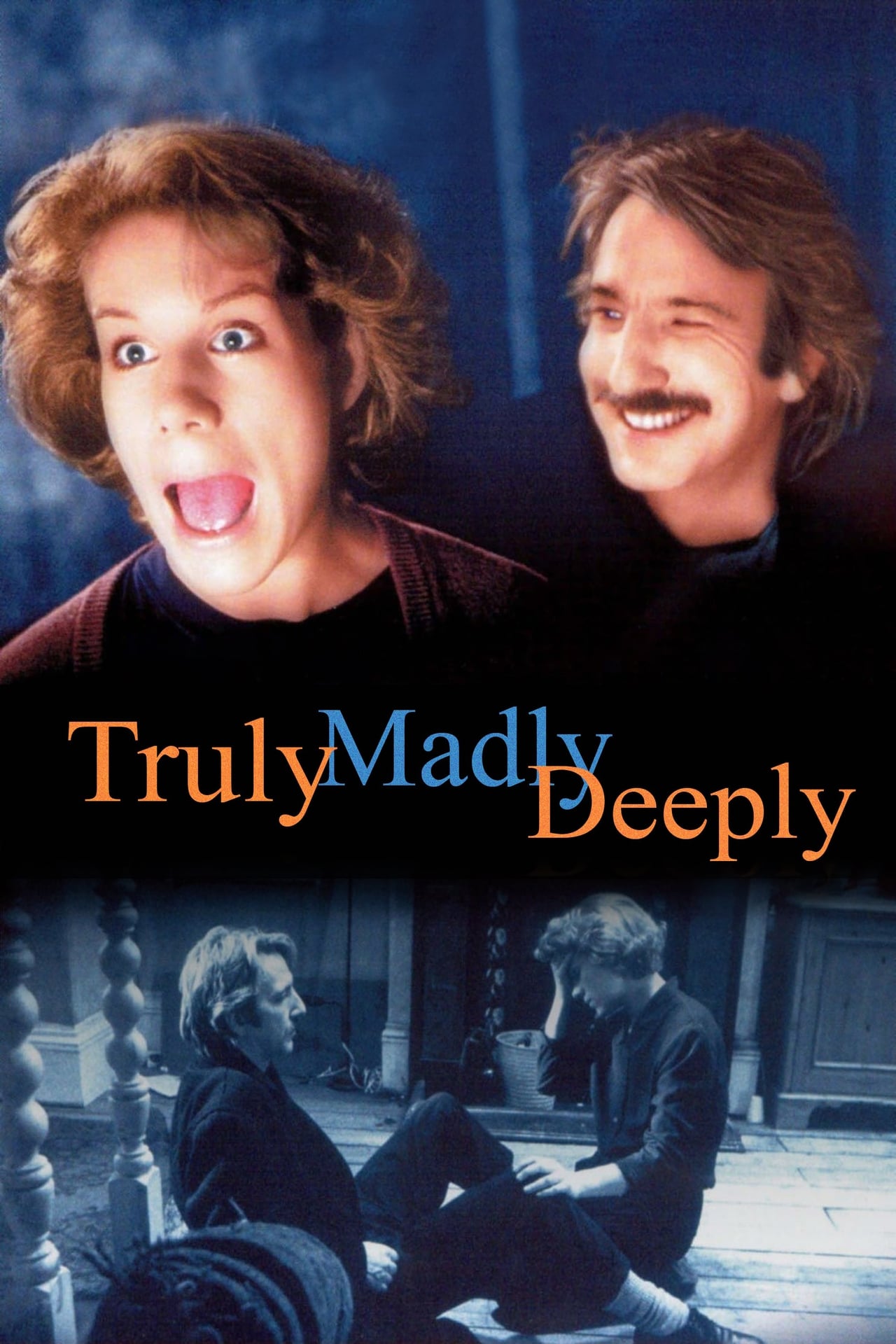
Truly, Madly, Deeply | 1990, Anthony Minghella
Minghella's best, I think (though I do love The Talented Mr. Ripley, with Jude Law at the preternatural peak of his beauty) and one of my favorite ghost movies. It is just so kindhearted and likable, and with a healthy dose of Bach music to boot!
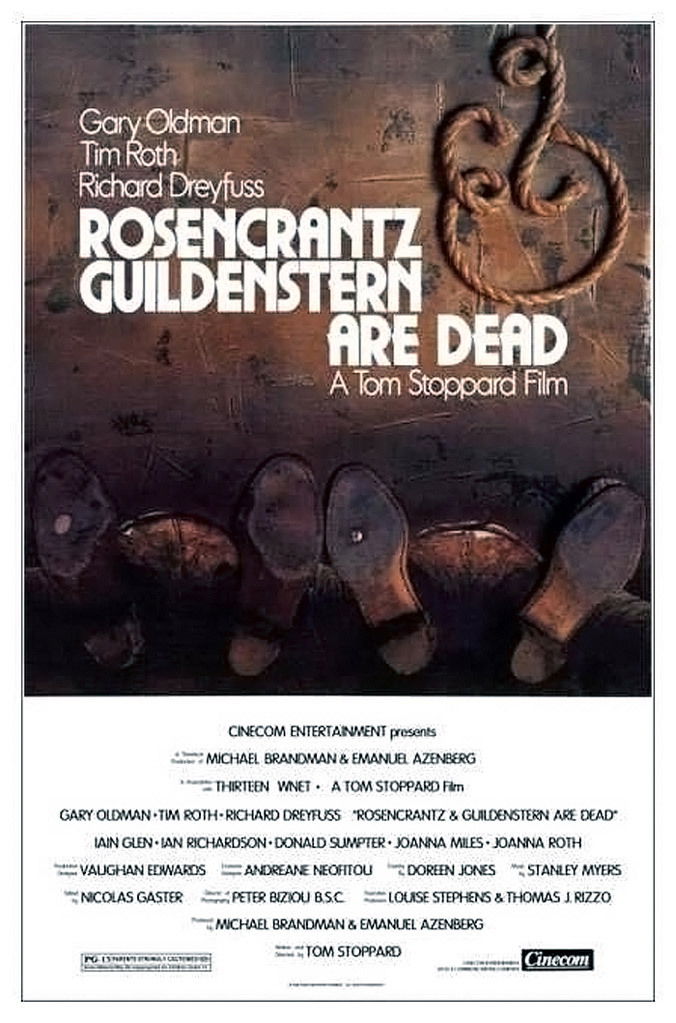
Rosencrantz & Guildenstern Are Dead | 1990, Tom Stoppard
Are all side characters ghosts? What do they get up to, when they aren't feeding the main players little nuggets of information to forward the narrative?

Ghost | 1990, Jerry Zucker
The classic non-horror ghost movie. I can appreciate it for what it is, though it is certainly not at the top of my list.
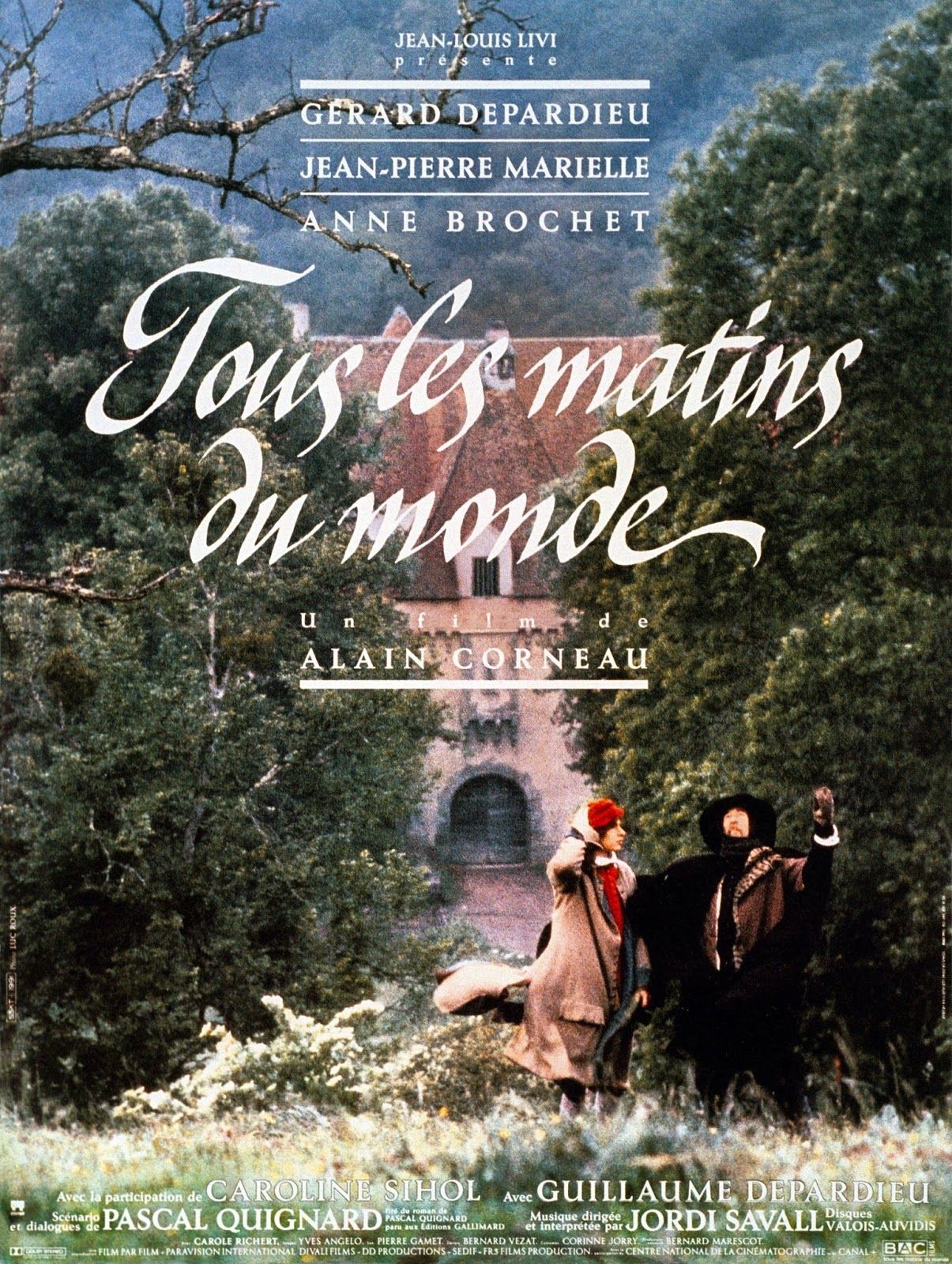
Tous les matins du monde (All the Mornings of the World) | 1991, Alain Corneau
A wonderful use of a ghost as a conduit for grief. I cannot fully trust anyone who can't appreciate Lully and Sainte-Colombe.
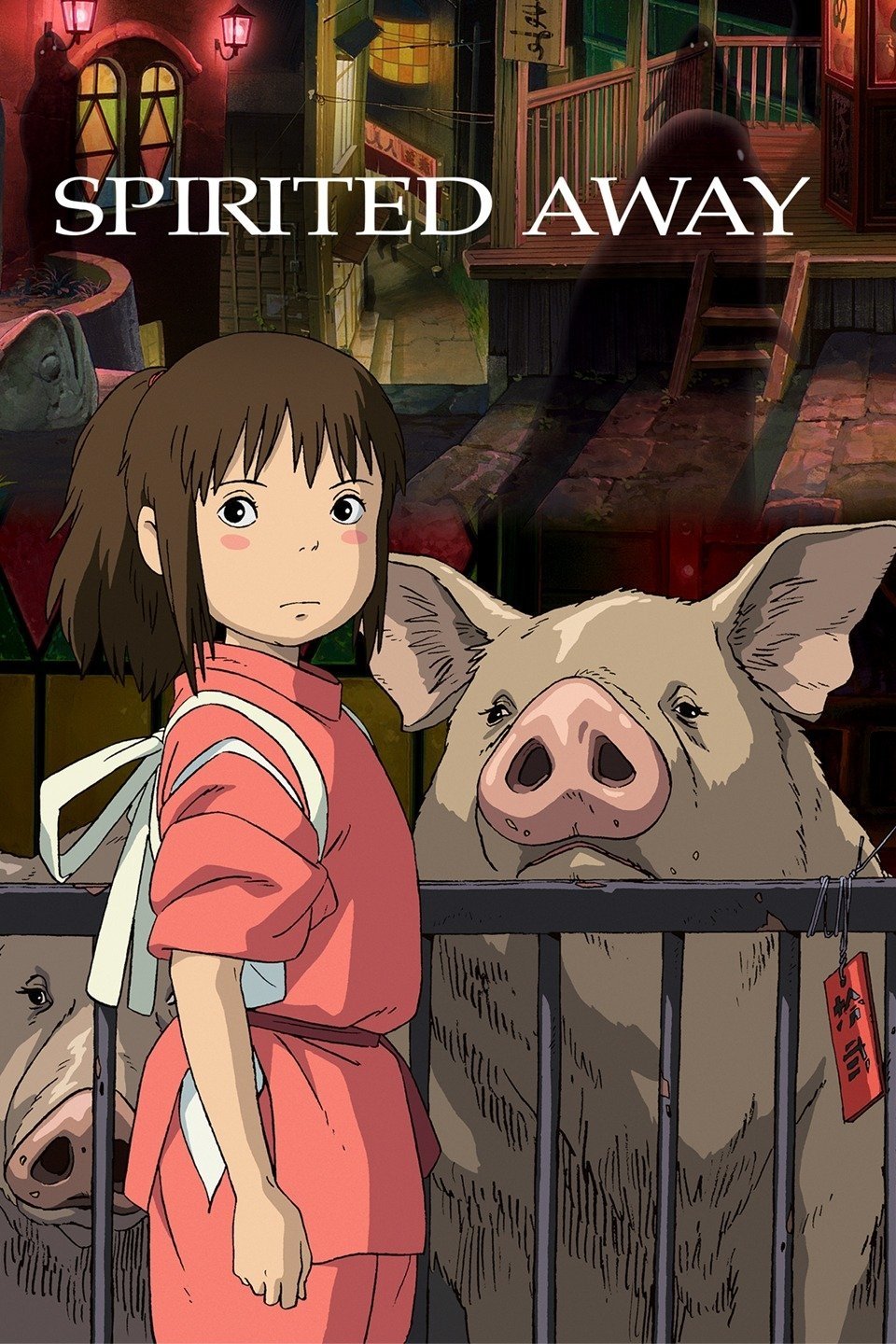
千と千尋の神隠し (Spirited Away) | 2001, Hayao Miyazaki
Miyazaki loves little ghost creatures, and there are multiple Ghibli movies which could fit on this list (I love both the Kodama of Princess Mononoke and the Warawara of The Boy and the Heron), but Spirited Away is such a celebration of the ghostly that it is the clear choice.
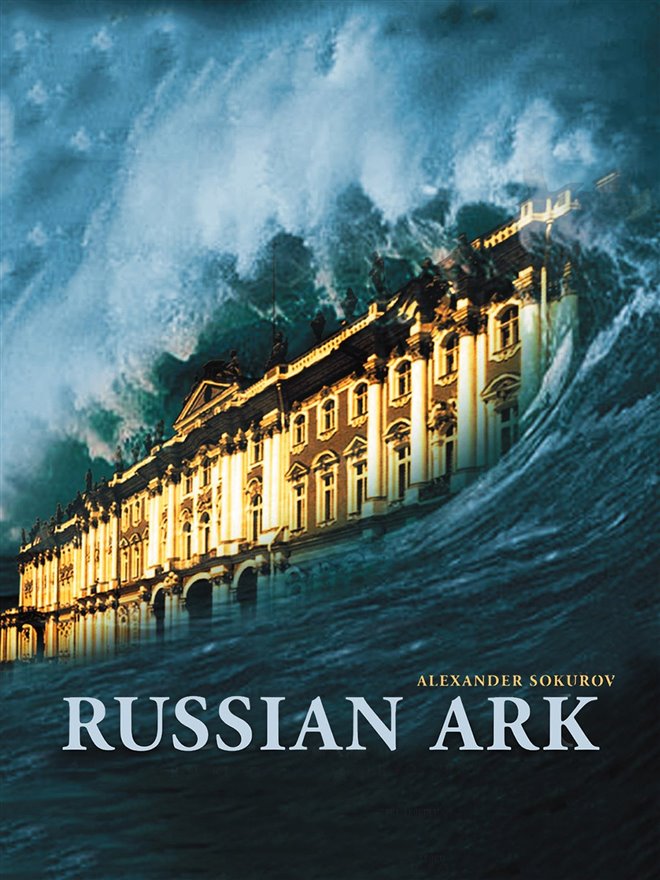
Русский ковчег (Russian Ark) | 2002, Aleksandr Sokurov
The ghost of aristocracy, a grief for a perceived loss of decorum and dignity whose nostalgic cravings grow so strong as to take corporeal form. The narrator and his companion, the delightfully Orlokian Marquis de Custine, play their ghostly roles admirably, but it is the spirit of history which impresses the most.
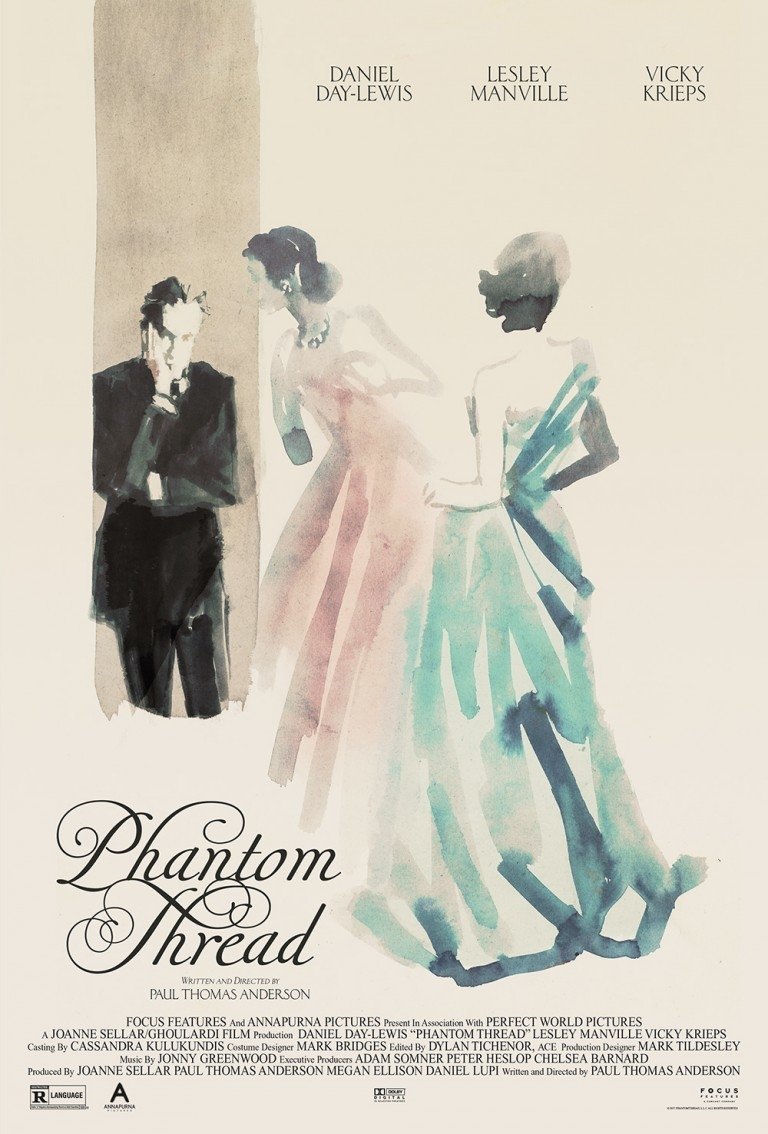
Phantom Thread | 2017, Paul Thomas Anderson
There is only one ghost in one scene, but I think about it all the time.
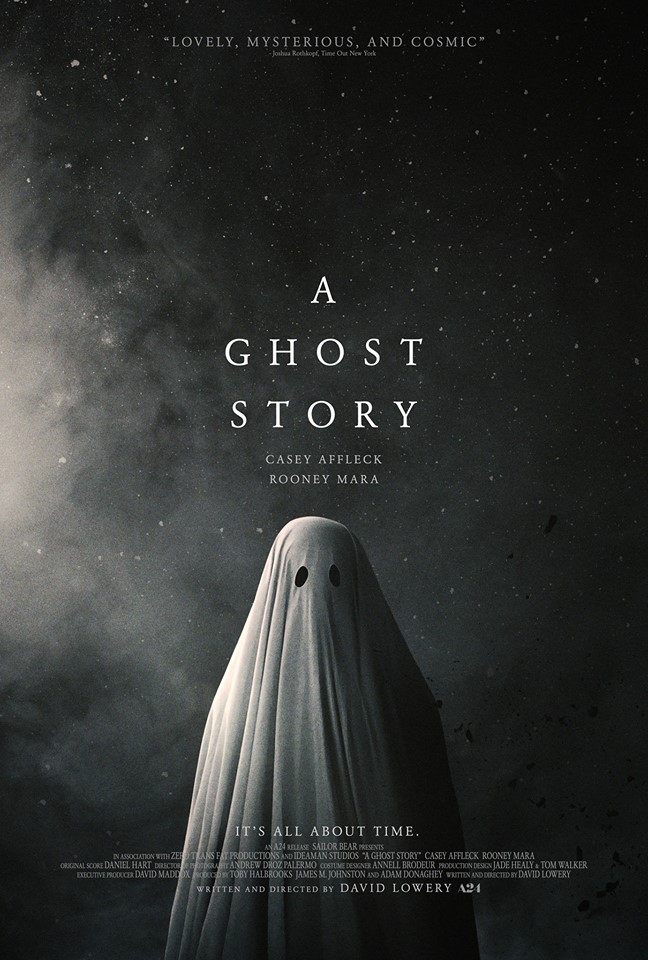
A Ghost Story | 2017, David Lowery
A very effective use of the ghost as a primarily emotional entity; while the movie does present the ghost as scary at times, it is not to turn the work itself into horror, but instead to further explore the character. I was enjoying it well enough until the first loop, and then it really had me.

Portrait de la jeune fille en feu (Portrait of a Lady on Fire) | 2019, Céline Sciamma
Much like Phantom Thread, the use of ghost imagery in this movie is very subtle but very effective.
I love ghost horror movies too, especially those which take on a more melancholic air! Movies like Pulse are scary and feature ghosts which make you pity them, which I love. Werner Herzog did the same thing with vampires in his Nosferatu. (Vampires often serve as more tragic figures than the usual horror villain; Interview with the Vampire and Sinners both took this route.)